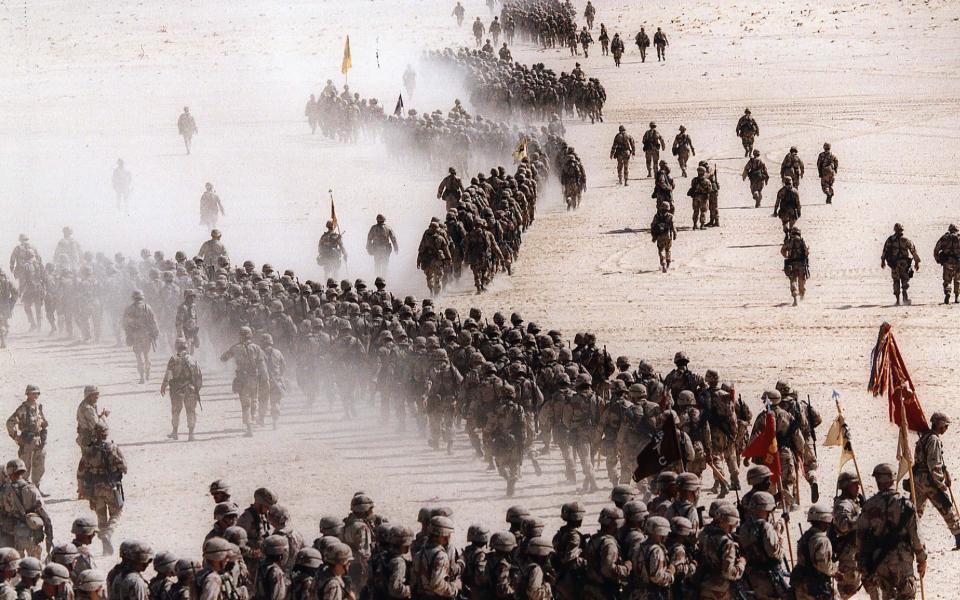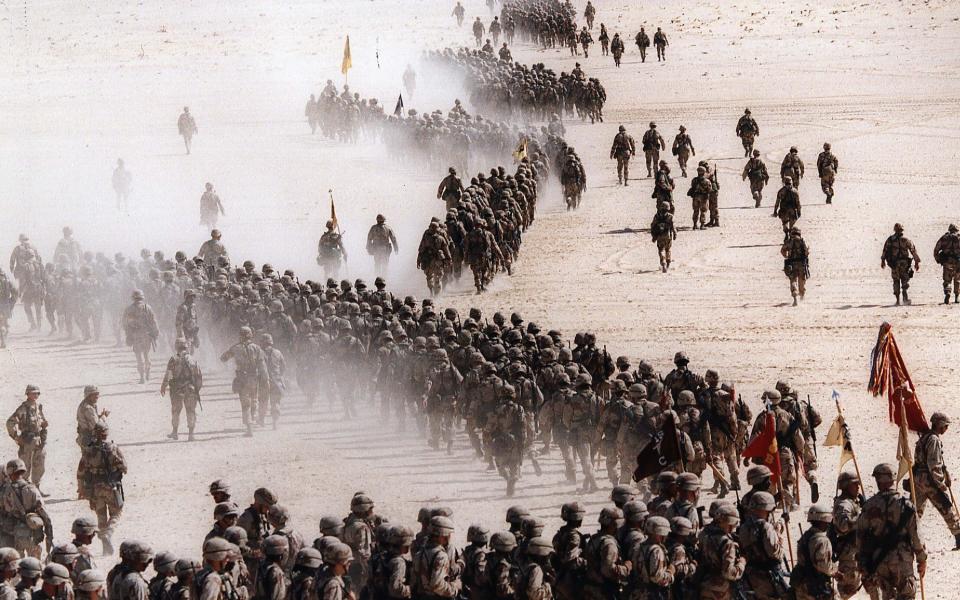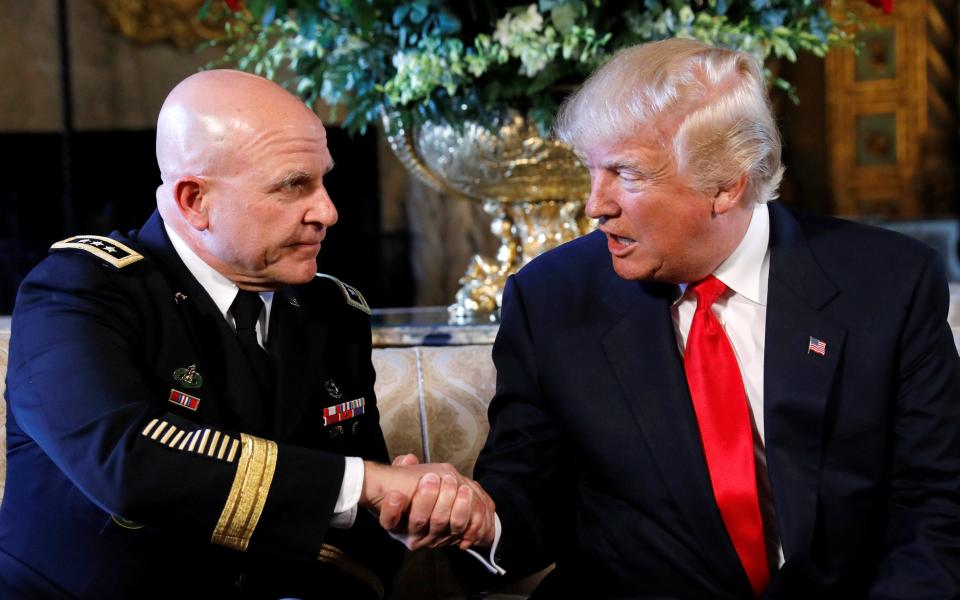HR McMaster is popular and respected – that doesn't mean Donald Trump will listen to him
What does the latest NSA appointment say about US security policy? Not much, sadly.
The appointment of the latest US National Security Advisor may have been met with near universal approval as "unambiguously good news" and "an outstanding choice", and Lieutenant General HR McMaster is unquestionably a dutiful and capable national servant, but his influence on Trumpian security policy remains uncertain at best.
In the UK it would seem like an invasion of civilian leadership in government to have a military officer serving as the National Security Advisor (NSA), but in the United States NSAs are frequently military and most of those from Colin Powell onward have worn uniform, although none since him have been serving officers, until now. McMaster now joins names like Powell, Condoleezza Rice and Henry Kissinger, but whether civilian or military it is hard to imagine he will have anywhere near the same influence in the current administration and the appointment offers few insights to likely policy.
Lt Gen HR McMaster is outstanding choice for nat'l security advisor - man of genuine intellect, character & ability https://t.co/rYmJm00Xdf
— John McCain (@SenJohnMcCain) February 20, 2017
Who is he?
This soldier-scholar may be a relative unknown outside of US defence circles but, similar to General Mattis, the man known as ‘HR’ is a rock star figure within them – something which President Trump has clearly bought into. He has a lifetime of military experience in an era of high-tempo operations and considerable military transformation, much of which he has been at the heart of.
He has command experience at multiple levels and in various operational contexts. He first establishing his reputation as a commander of armoured forces at the Battle of 73 Easting in the first Gulf War, where his troop destroyed a Republican Guard force six times their size (including forty-four armoured vehicles) in just over twenty minutes.
He commanded in Iraq again at brigade level, this time mastering counter-insurgency in Tal Afar northern Iraq, to the extent that he was employed by General Petraeus to help transfer those lessons to the wider forces. With fighting over Tal Afar raging once again such personal experience of the complexities in regional sectarianism and recurring conflicts can only add value in his new role.
McMaster’s academic credentials are similarly impressive. He earned a doctorate in military history with a critique of the "Dereliction of Duty" in political-military decision-making leading to the escalation of the Vietnam war. In it he was critical of the "silent men" serving as service chiefs and emphasised the importance of robust processes in security and foreign policy – something he must now practice in reality.
It is an interesting historical side note that only five years after that war’s conclusion, which saw more casualties and US social disruption than the post 9/11 wars combined, there was a renegade Republican in the White House – Ronald Reagan – who also had difficulties with his early NSA appointments and commenced a military build-up in spite of anti-interventionist rhetoric.
As a practitioner of "applied history" McMaster has been responsible for shaping US Army doctrine in recent years. As part of this, he has sought to combine the latest technological advantages with honest self-reflection for both conceptual and military prowess. He has engaged widely in doing so, including frequent visits to the British military and academic communities, the most recent of which, less than a month ago, included a speech on future threats to US military strategy, which was noticeable for being held at a social policy think tank. Such efforts have created somewhat of a renaissance in US military doctrine and McMaster’s role in authoring the current Army Operating Concept "Win in a Complex World", points to the general’s appeal for Trump (a fan of winning).
Why him?
Trump's love of winning may have led him to repeatedly criticise the generals responsible for "absolute failure" in Iraq and Afghanistan. But, he clearly has a respect for those who serve and three of the four NSA candidates were military. As a war hero with an "aura of disruption" McMaster is clearly considered one of those few good generals with whom Trump can work.
As a serving officer it is as much a posting as an appointment and that provides both opportunities and challenges, enabling him to avoid the pitfalls of his highly political predecessor (Mike Flynn’s fate was sealed not by engaging with Russia but the perception of having deceived the Vice President – a repetition under McMaster is unimaginable) and play the honest broker of policy options, but at a risk of it falling on deaf ears as the advice of just another dutiful servant.
So the appointment indicates neither a tendency towards hawkish intervention nor dove-like isolationism. Contrary to the image of a hawkish"warrior administration", the general knows better than any the complex and bloody realities of conflict and the risks of an aggressively combative security policy.
However, as McMaster spoke about when last at the Royal United Services Institute, he is also critical of the ‘self-delusions’ on the nature of conflict that he believes have created vulnerabilities in all NATO forces and has been critical of their inability to operate at sufficient readiness, scale and duration to deter or coerce potential adversaries. Such a position, combined with his personal credibility, is likely to afford the administration considerable leverage in military to military relations with both allies and potential adversaries.
For example, while he has publically spoken on Russia’s employment of limited warfare for limited objectives, he has previously stressed the failure of Alliance forces in allowing them to "accomplish these objectives at no cost because there is no military deterrent capability". This may be at odds with Trump’s (current) policy position on Russia, but places him alongside Secretary of State Jim Mattis on the Russian threat and the wider administration on increasing defence capabilities for deterring both revisionist and rising powers.
So McMaster is seasoned at both talking and fighting, and fighting as talking, and is comfortable with the political nature of defence and security. But that does not equate to a powerful influence on US policy and the prospects for success, in this his latest and toughest assignment, are uncertain at best.
Soldier, scholar… and politician?
The remarkable consensus on McMaster’s abilities, integrity and popularity, will undoubtedly make him a more credible and influential voice than his predecessor (it was Tom Cotton, one of his former officers and now a Republican Senator, who pushed his candidacy), and his greatest "weapon" will be in consistently representing the military values for which he was appointed.
But as a serving officer McMaster’s ability to dictate the conditions of his employment and the processes of the National Security Council are likely to have been minimal (reportedly the reason for Vice-Admiral Harward’s previous refusal of the position). His insistence on rigour and discipline in robust national security processes – the essence of his PhD being that the Vietnam war "was lost in Washington DC" – is likely to put him at odds with the unprecedentedly executive and chaotic approach of the Trump administration. The role of moderate voices remains in question.
The general is heading to DC because he knows that is where the lives of American service personnel, their allies and civilians are saved or lost. His acceptance of the NSA role is undoubtedly the result of military discipline and a reverence for his patriotic duty, rather than personal ambition.
For all the ‘truth unto power’ imagery of that Mar-a-Lago photo-call (witness the deliberately clear-eyed General offering a subtly dominant handshake), the general can offer those truths until he is red-white-and-blue in the face but, with Donald Trump in the Oval Office and Steve Bannon on the NSC, it remains to be seen if that power is listening.
Peter Quentin is a research fellow for military aciences at the Royal United Services Institute

 Yahoo News
Yahoo News 


